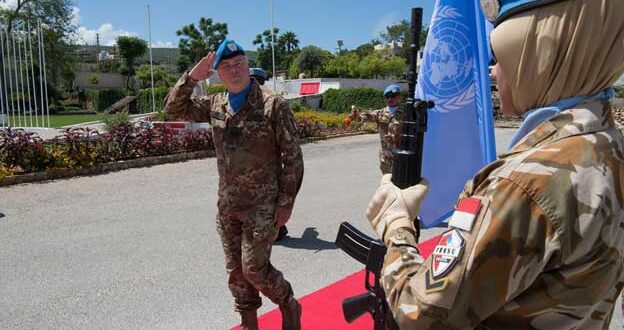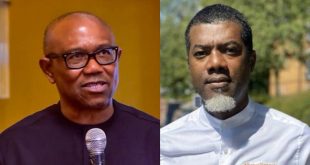CANBERRA, Australia, Nov 11 (IPS) – UN peacekeeping dangerously overlooks the fact that peace operations have each unintended and adverse penalties. Any intervention into the politics and tradition of a group is sure to create tensions between native practices and overseas peacebuilding practices.
Since its inception in 1948, peacekeeping and peacebuilding operations have been hailed by the worldwide group as an effective, vital tool to stabilise conflict-ravaged countries and promote global peace. For on a regular basis residents unaffected by such conflicts, peacekeeping is mostly perceived as a well-intended, crucial intervention to guard harmless civilians, forestall additional battle and help with peacebuilding efforts.
Peacekeeping entails the deployment of UN troops to support the implementation of a ceasefire or peace agreement during a conflict, although they usually oversee total peacemaking processes.
Peacebuilding goals to scale back the danger of battle reoccurrence by strengthening a state’s conflict management capabilities and facilitating reconciliation. Nevertheless, these efforts don’t assure success or native acceptance. In reality, peacekeeping and peacebuilding could do extra hurt than good.
Implicit moral messages behind peacekeeping
The position that UN peacekeeping missions play in conflict-ravaged nations can’t be meaningfully examined with out contemplating the implicit ethical messages that worldwide officers, whether or not they be peacekeeping troops or administrative employees, carry by their attitudes and actions.
Whereas implicit moral messages ideally promote mutual respect and inter-group collaboration with the native stakeholders of a given battle, they usually implement notions of privilege and power held by foreigners. Attitudes of entitlement vis-à-vis native residents can manifest by the presence of armed guards, extreme leisure actions and even modes of transportation.
For instance, in Cambodia, the 1991-1993 United Nations Transitional Authority in Cambodia (UNTAC) solid a disparate financial divide between expatriates and non-UN employed locals. Exterior of their mission, many UNTAC worldwide officers spent their leisure time at resorts, buying centres, eating places, brothels, and bars, none of which the locals might afford.
Though these life-style patterns didn’t immediately have an effect on the substantive work or agenda of the peacekeeping mission, they however acted as a lens by which native residents, leaders, and stakeholder teams perceived the legitimacy of the mission itself.
Certainly, this was significantly salient when UNTAC worldwide officers turned more and more related to prostitution. The rampant rise of HIV-AIDS noticed the acronym UNTAC change into ridiculed because the “UN Transmission of Aids to Cambodia.”
Additional examples of the adverse implicit moral messages that may seep by peacekeeping missions are the 1999-2002 United Nations Transitional Administration in East Timor (UNTAET) and the following United Nations Mission of Support in East Timor (UNMISET) from 2002 to 2005.
Whereas the overriding agendas of those UN operations have been peacebuilding and state-building respectively, the practices adopted by the packages’ worldwide directors and officers signaled attitudes of privilege.
By accommodating UN officers in “floating resorts” and utilizing the identical headquarters because the earlier Indonesian administration, an “us vs them” mentality was cemented between the foreigners’ luxurious, flagrant existence and the widespread poverty skilled by locals.
Moderately than integrating locals into a brand new post-conflict world, they have been frequently economically and culturally marginalised. Not solely have been locals restricted to menial jobs, however they have been additionally confronted with the upheaval of Timor-Leste’s conservative, Catholic traditions as foreigners raised the demand for prostitution, pornography, and fewer conservative clothes.
The implicit message that arose from these socio-cultural clashes between the native and worldwide spheres was that UN directors have been privileged and prioritised their very own consolation over bottom-up state-building and peace efforts.
This resulted in native resentment, criticism, and frustration in the direction of the overseas administration, a few of which was expressed by damaging UNTAET automobiles.
The displacement of the “native” in peacebuilding
Present peacebuilding efforts are inclined to take a top-down method to battle decision by state-building. State-building focuses on bettering the executive capabilities of the state to train authority and stability over its society.
It carries the implicit view that conflict-ravaged nations are “failed states” that want help and assist from exterior nations to stop additional escalations of violence. This mentality is flawed because it fails to completely contain and recognize the totality of native populations.
With out an consciousness of the inherent cultural variations between native and expatriate communities, any peacekeeping operation is sure to lead to native clashes and resentment. Nevertheless, cultural consciousness alone is inadequate for implementing profitable peacebuilding operations. The substantive content material and techniques of peacebuilding should even be localised, somewhat than externally imposed.
With out meaningfully participating with the insights and aggravations of native populations, the foundation causes of a battle can’t be addressed to attain long-term peace. It’s particularly necessary to permit for voices from varied societal teams to be heard, somewhat than permitting elites, or a single non secular or ethnic group, to dominate peacebuilding discussions.
By creating platforms for open dialogue between home actors, at minimal there is a chance for grievances to be constructively shared and negotiated. With out this dialogue, grievances usually tend to be exacerbated by state-building efforts that entrench sure political teams or fail to really perceive the battle within the first place.
For instance, in 1991 the United Nations Observer Mission in El Salvador (ONUSAL), which was established to supervise the post-civil warfare agreements between the federal government of El Salvador and Farabundo Martí Nationwide Liberation Entrance, sought to reform the nation’s armed forces, police, and judicial programs, however the imposition of liberal economic governance frameworks also entrenched existing elite structures.
The place to now?
As an alternative of displacing the “native” by carrying implicit presumptions that extra worldwide intervention and top-down state-building are the one technique of instigating sustainable peace processes, the worldwide group ought to discover methods to empower – not silence – native voices.
This isn’t to say, nonetheless, that we should always idealise native actors, nor that they are going to face fewer difficulties or criticisms within the strategies they select to resolve conflicts. However the place native actors categorical a willingness to resolve battle, worldwide assets should be purposefully mobilised to assist native peacebuilding efforts and management.
Even the place native actors are immune to battle decision efforts and proceed to be belligerent, the worldwide group ought to however take a bottom-up method in understanding the socio-cultural, political, and financial dimensions underpinning the battle.
For the United Nations to take care of its legitimacy and standing as a pacesetter of worldwide peace, it should reassess its typical approaches to peacekeeping and peacebuilding.
This text is revealed underneath a Inventive Commons Licence and could also be republished with attribution.
Supply: Australian Institute of International Affairs
Follow @IPSNewsUNBureau
Follow IPS New UN Bureau on Instagram
© Inter Press Service (2020) — All Rights ReservedOriginal source: Inter Press Service
 Top Naija News: Nigerian News, Breaking News Nigeria and World News Top Naija News is a daily news publication in Nigeria, delivering the latest breaking news in Nigeria and around the world.
Top Naija News: Nigerian News, Breaking News Nigeria and World News Top Naija News is a daily news publication in Nigeria, delivering the latest breaking news in Nigeria and around the world.




